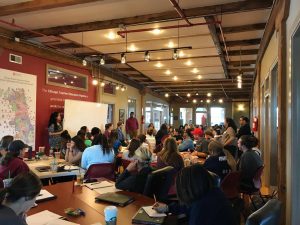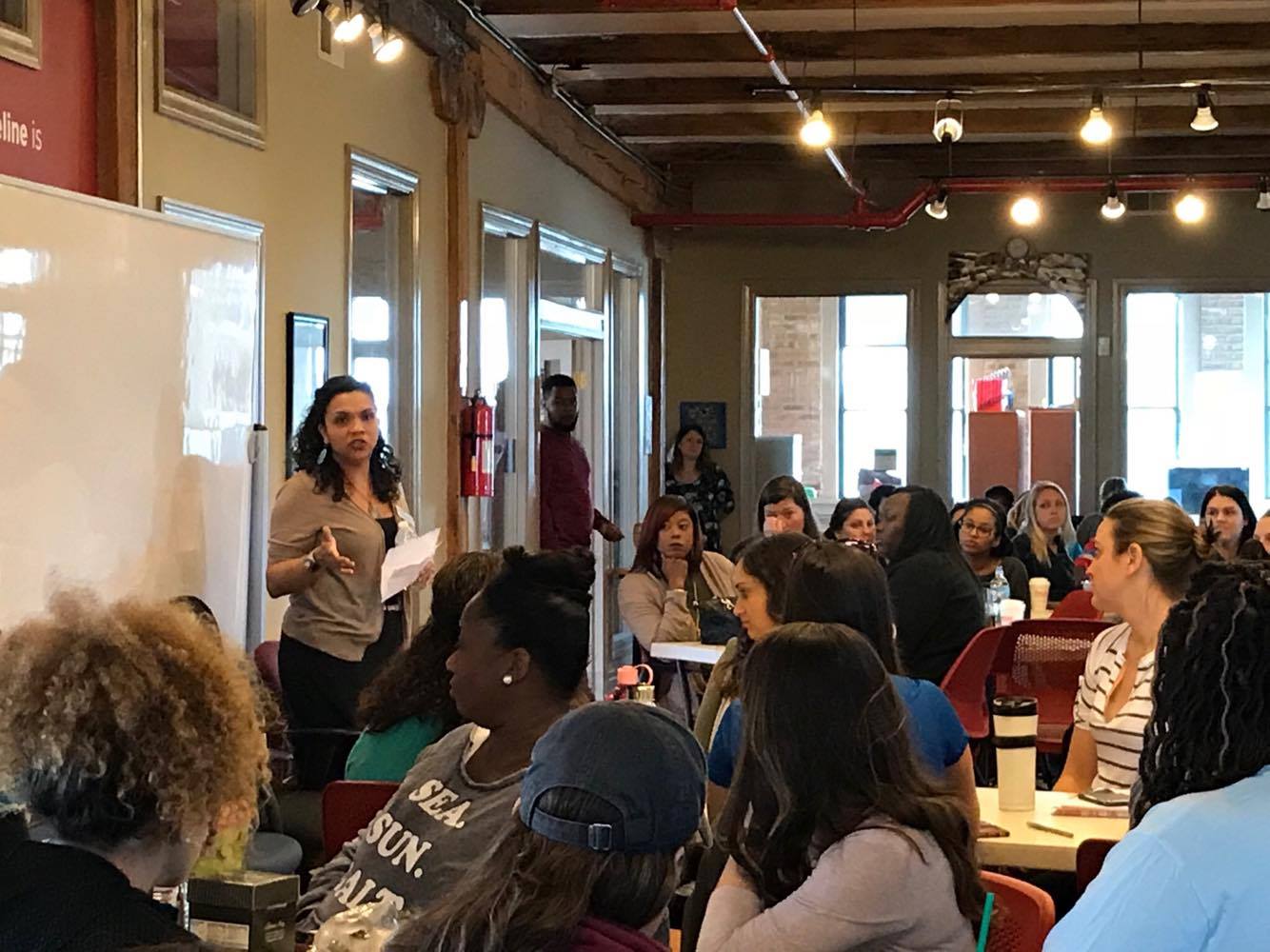On October 21, 2017, the Chicago Teacher Education Pipeline (CTEP) Induction and Mentoring Program hosted its first workshop of the year for Chicago Public Schools (CPS) teachers. The Induction and Mentoring program partners newly graduated teachers from Illinois State University (ISU), who have attained a teaching position within CPS, with veteran teachers for a period of two years. As the I&M website states, “Having in-building mentors ensures regular contact, and provides the mentees with on-the-job coaching, social support, and professional guidance.“
In 2009, the University of Chicago published a report titled The Schools Teachers Leave: Teacher Mobility in Chicago Public Schools. In the report, it states that, “Just over half of the teachers (55 to 58 percent) stay in their school beyond three years, which is similar to national rates.” One of the key goals for CTEP’s Induction and Mentoring program is to reduce the attrition rate of teachers leaving the profession by providing both veteran and new teachers opportunities for growth through monthly professional development workshops that address their needs.
Both Apryl Riley and Joanna Oceguera, the program’s director and manager, respectively, were once part of the program as mentors. They were sought out by ISU alum at their corresponding schools to be their support for the next two years. “It’s almost as if the teacher becomes the student. In our attempts to cause effective reflective practice, we begin to reflect on our own practices,” said Ocegueraof the impact being a mentor had on her. Shortly after her experience as mentor, Oceguera joined the CTEP team as a program manager.
This past July, Riley became the new Induction and Mentoring Program Director at CTEP. Mr. Riley taught high school level English within CPS for eleven years and is currently pursuing her Ph.D. in Higher Education Leadership through Concordia University. When planning for this year’s first professional development, “We knew that we wanted to ensure everyone was aware of the logistics for the program,” said Riley. “We welcomed the idea of the ‘community teacher’, […] we wanted to invite those that are doing the work in the communities to enlighten teachers of how they can be more connected in the communities in which they teach.”
As part of the professional development, both mentors and mentees were led through a workshop by Valentina Gamboa-Turner, program coordinator of CTEP, and community based organization representatives Derris Cameron and Gynger Garcia, from the Greater Auburn Gresham Development Corporation (GAGDC) and Breakthrough Urban Ministries, respectively. The Student Teaching and Clinical Visits team at CTEP works closely with the community based organizations to coordinate connections between ISU students, faculty, and partner communities. The workshop focused on the topic of becoming a “community teacher” and what that means for educators and communities alike. “It was great to hear them share their experiences openly about this topic. While they discovered they share similar experiences within their school buildings, they don’t have the opportunity to share their thoughts as frequently with their colleagues,” said Riley on the conversations sparked that day.

Approximately seventy CPS teachers attended CTEP’s Induction & Mentoring professional development workshop.
The workshops had a successful turnout as approximately seventy attendees were present. The morning session was followed by an afternoon session for the mentors alone. Mentors were given professional development on what the role of a mentor is and what it looks like in the educational field for newly hired teachers (mentees). The National Center for Urban Education states that, “Mentor teachers receive state sanctioned mentor training […] This program is one of the few in the nation that continues to support education graduates after they matriculate.” With over 70 participants in the program this year, Oceguera is excited to see the program continue to grow and sustain its presence and mission to support new and veteran teachers. “I predict that before December we will have four more mentor-mentee pairs,” she said.
The Induction and Mentoring Program will continue to work with the community organization collective in hopes of fostering the idea of being a “community teacher” with the mentors and mentees. “If teachers are able to connect to the students they teach, they will be able to have community within their classroom and be able to have a more culturally relevant curriculum,” concluded Riley.
Citation: 1 Allensworth, Elaine, et al. “The Schools Teachers Leave: Teacher Mobility in Chicago Public Schools.” CCSR Teacher Mobility, Consortium on Chicago School Research, 2009, consortium.uchicago.edu/sites/default/files/publications/CCSR_Teacher_Mobility.pdf.

